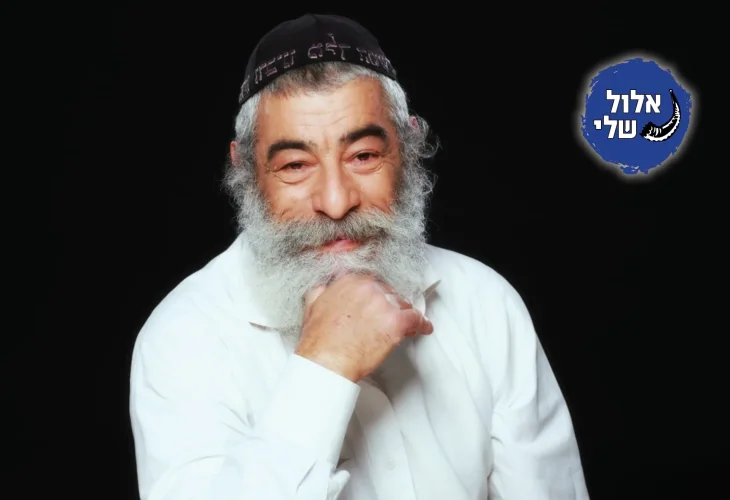Ariel Zilber's Journey: From Musician to Faithful Observer
Discover how musician Ariel Zilber's first Elul after embracing faith transformed his life, who he most recently asked for forgiveness, and which prayer moves him during the High Holy Days.

Meet Ariel Zilber
"I'm Ariel Zilber, a widower, father of four, and proud grandfather to many, thank Hashem. I was born in Palestine in 1943 to a musical family. My mother, Bracha Zfira, was a singer, and my father, Ben Ami Zilber, played violin in the philharmonic. Music has always been my passion, and I continue to be involved as a singer, composer, and creator. I love performing my songs and am conservative in my views. Currently, I live in Gitit in the Jordan Valley, composing and creating until my last breath."
When Did You Begin Your Spiritual Journey?
"I've always been a believer, and for the last nineteen years, I've been fortunate to fully embrace my faith, which is now an active part of my life. I strive to fulfill Hashem's commandments according to the Shulchan Aruch and Rambam—observing Shabbat, praying, keeping kosher, giving tithes, and everything else."
Your First Elul After Returning to Faith
"I remember that first month of Elul as a very special time. I was living in the settlement of Metat in the north, near the Lebanese border. There were only four of us religious people there. I can't recall whether we read the Selichot or blew the shofar; we definitely didn't have a Torah scroll, but we knew it was Elul. We stuck to prayers without any lapses, and that was the foundation for the spiritual strength that followed. Understanding that a Jew needs prayer because it's how he connects with the Creator was key."
Which Prayer During the High Holy Days Moves You Most?
"All the prayers in Selichot are deeply moving to me—it starts with 'Adon HaSelichot,' continues with 'BeZochri Al Mishkavi,' through 'Atanu LeChalot Panecha,' 'Machai U'Massai,' and so on. Each prayer sends shivers down my spine. When I sing the prayers of the High Holy Days, I feel closer to Hashem than at any other time and blessed to be able to ask for mercy."
When Was the Last Time You Asked Someone for Forgiveness?
"It was just recently, on Shabbat evening. I went to the synagogue where I regularly pray—a mixed synagogue with different prayer traditions. There, I stood as a cantor, and because some people were late and still reading 'Shir HaShirim' (Song of Songs), I had to interrupt them towards the end, even though there was still time before sundown. I later asked for their forgiveness. I never want anyone in the world to hold a grudge against me."
Reflections on the Past Year
"So much has happened to us during the year 5784, and my main feeling is that it's a shame we're not living under King David's reign. He was strong, fulfilled Hashem's commandments as they should be, managed his enemies both inside and outside, and remained faithful to Hashem throughout his life. Despite his sins, King David always knew to come before Hashem and ask for forgiveness, stood by his words, and was always straightforward with Hashem. We are in need of a King of Israel in such challenging times."

